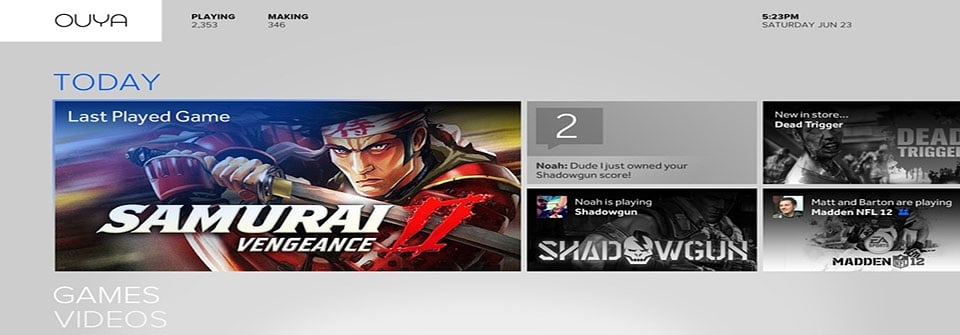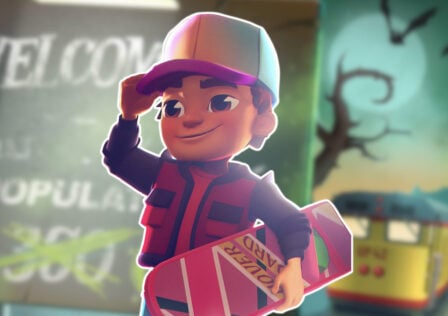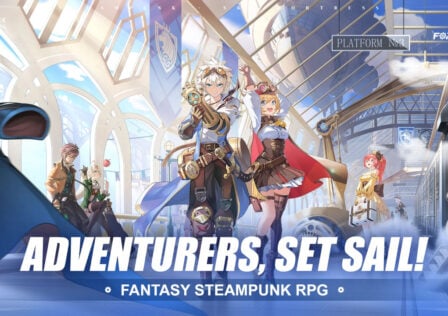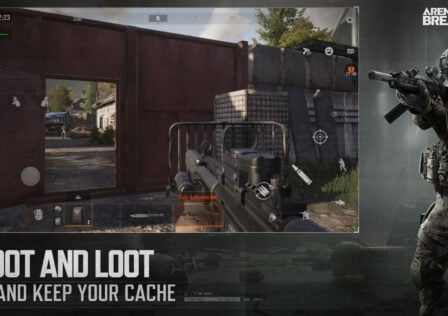So, all the news and commotion about the OUYA and it’s supposedly magical, revolutionary controller got me thinking about what actually using the OUYA would be like. In the promotional video, the footage shows Yves Behar and the design team working on the controller for OUYA. From what was shown, it seems like there is a ton of hard work, large amounts of care and smart design going into the feel and ergonomics of the controller.
In the video, we see the team drawing up rough sketches and redesigning multiple revisions and drafts of the controller’s design, which is almost as iconic and synonymous with the OUYA as the little silver box itself. The OUYA console is being designed for TV and larger screens in mind, much more like a more traditional console and set-top box, instead of the phones and tablets that Android is more accustomed to running on.
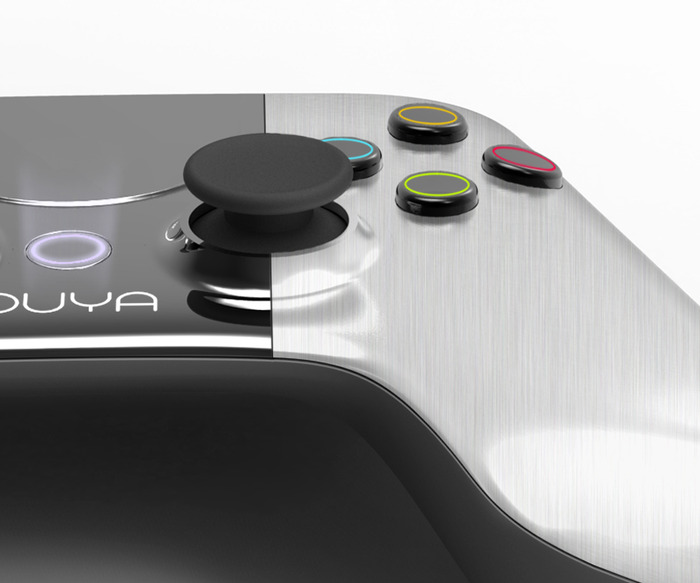
Aside from the standard problems with releasing a new console in this generation, There are three larger problems at hand. The first being distribution, the second being navigation around the system itself and the third being compatibility. It is stated that the OUYA will come with a touch pad as a secondary means of input, but it is unsure if the touch-pad itself is just an external laptop-style track-pad or a separate device, possibly paired with Bluetooth, with it’s own screen to control touch-only games. But if the “Hardcore” sect of gamers find using touch controls hard, they will find that using a sole touch-pad for relative touch control is even harder. If you’ve ever tried to play a game on and HDTV via HDMI from a tablet, you’ve learned that gameplay is very difficult and that stems from personal experience.
Back on the first problem of distribution, where will the games for OUYA be published? Will they have their own, proprietary store? Will they use Google Play? And if so, will third party application stores like the Amazon Appstore and Getjar be supported? There are some negative and positive effects of the OUYA having it’s own, separate marketplace for games. In it’s current state, Android game devs (and most other mobile developers) have to be thinking about mobile first. This means that they have to be constantly aware of how and where their players are playing these games. Maybe they’re playing on a bus? or they may be playing a quick game while waiting in line at a coffee shop? There is a myriad of different scenarios, situations and combinations of the two, that developers have to think about, because of the platform they chose to develop for.
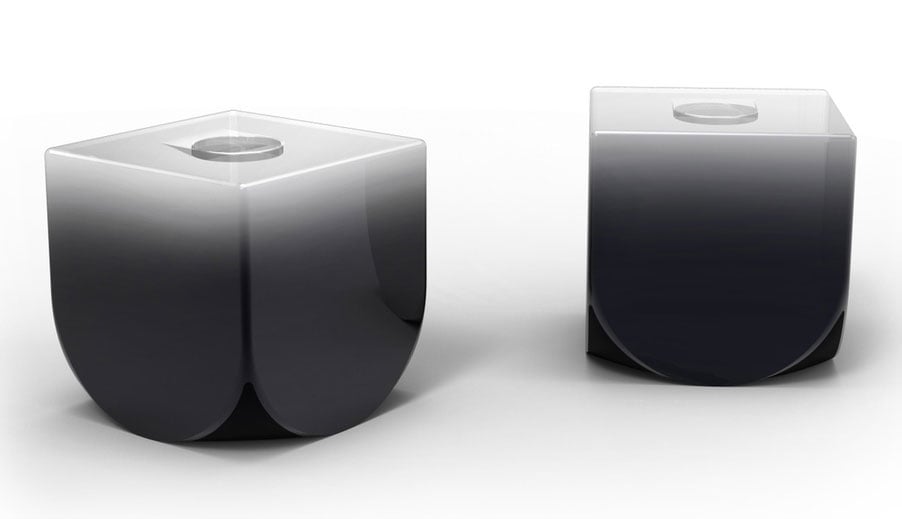
And if they choose to do so, Mobile and independent game developers will have a lot more flexibility working with the OUYA, rather than the phone and tablet versions of Android. Instead of thinking about the amount of time the player has, developers can think about fully fleshing out their games, more like they would on traditional consoles, with larger story lines and more complex types of gameplay. But fragmentation within a single category amongst the entire library of Android’s applications could prove to be larger problem.
Like I said before, developers could choose to develop for the phone and tablet optimized versions of Android or they could spend their time working on a larger, OUYA-specific title, geared toward the living room. The real question here is, will both versions of any title, both previously released and newly released titles made specifically for the OUYA, be compatible with each other? They both share the same code base and they both run Android, but will the OUYA specific titles eschew smartphone-friendly, touch controls for game-pad only support? Only time and enthusiasm from the developers will tell.
And on a similar note, what will be the main source of input for the OUYA? game-pad or touch-pad? Will the OUYA have access to normal Android applications? If so, what kind of applications will the OUYA be able to run? In my opinion, I think (and hope) that the console will be able to run Android tablet apps. Because the OUYA runs Android, and if meets Google’s required specifications, the device will be able to do standard console tasks like running Hulu, Netflix and Amazon Instant Video, but it will also have the ability to run other apps like TweetCaster and YouTube, for more computer like tasks than the current consoles are able to do. The thought of my home console being even more of a smart, connected, all-around entertainment center is exciting and the possibility of pairing a Bluetooth keyboard and mouse to the console to check and fire-off a few quick emails or surf the web using Chrome, would be a differentiating factor when comparing the OUYA to the other home-consoles of the current generation.
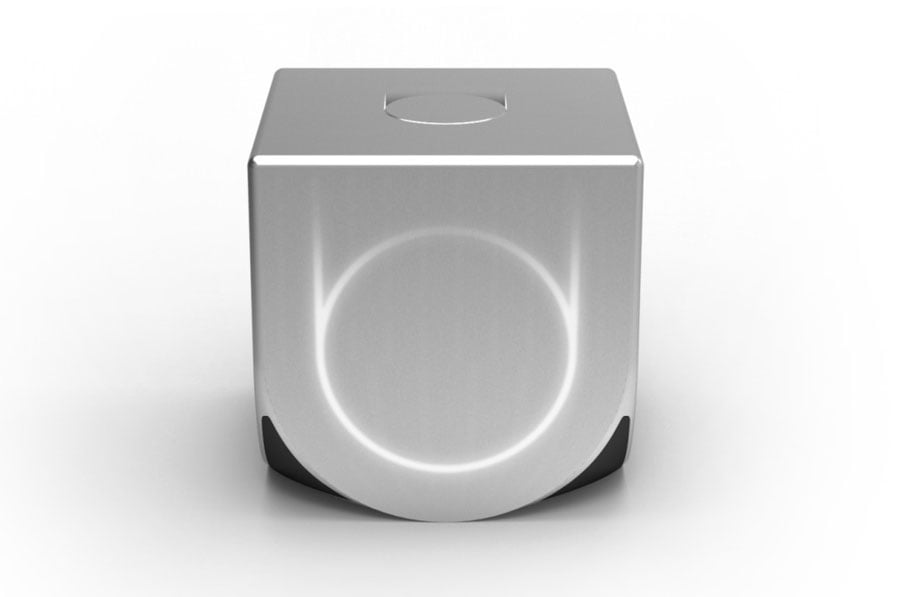
And to my final point. The OUYA is being billed as a open and hack-able box. A dev kit for those who want it and just a normal console for those who don’t. If you think you can make a good game, make it and the OUYA makes this possible. Such a seemingly disruptive device harkens back to an earlier time in personal computing. Remember the days of the Commodore 64 and ZX spectrum? the users of these device were require to have at least some knowledge of whatever programming language came with the computer. Though the OUYA doesn’t require programming knowledge, the open nature of Android and the OUYA promote independent development. Like I said before, if you have a decent idea for a game, you can develop and publish much easier than you could if you were publishing a title for a service like Xbox Live or Playstation Network.
Like I said in previous posts, it is an exciting time to be an Android gamer, but many more problems will face the OUYA on it’s long and difficult journey to market, the product has received enough mind share, excitement and hype throughout the entirety of the games industry to be a possible success. Raising over 4 million in it’s first day on Kickstater is no small feat, but the OUYA will be the underdog trying to dethrone the long-established champions in their own space. Let’s hope the future of the OUYA is bright, because I would love to see this, instead of the ill-fated Evo 2 Gamebox.
Editor’s note: Figured thise was a good time to post this now that the first exclusive game to Ouya has just been announced. I think everyone on staff wants to write an editorial about Ouya.


